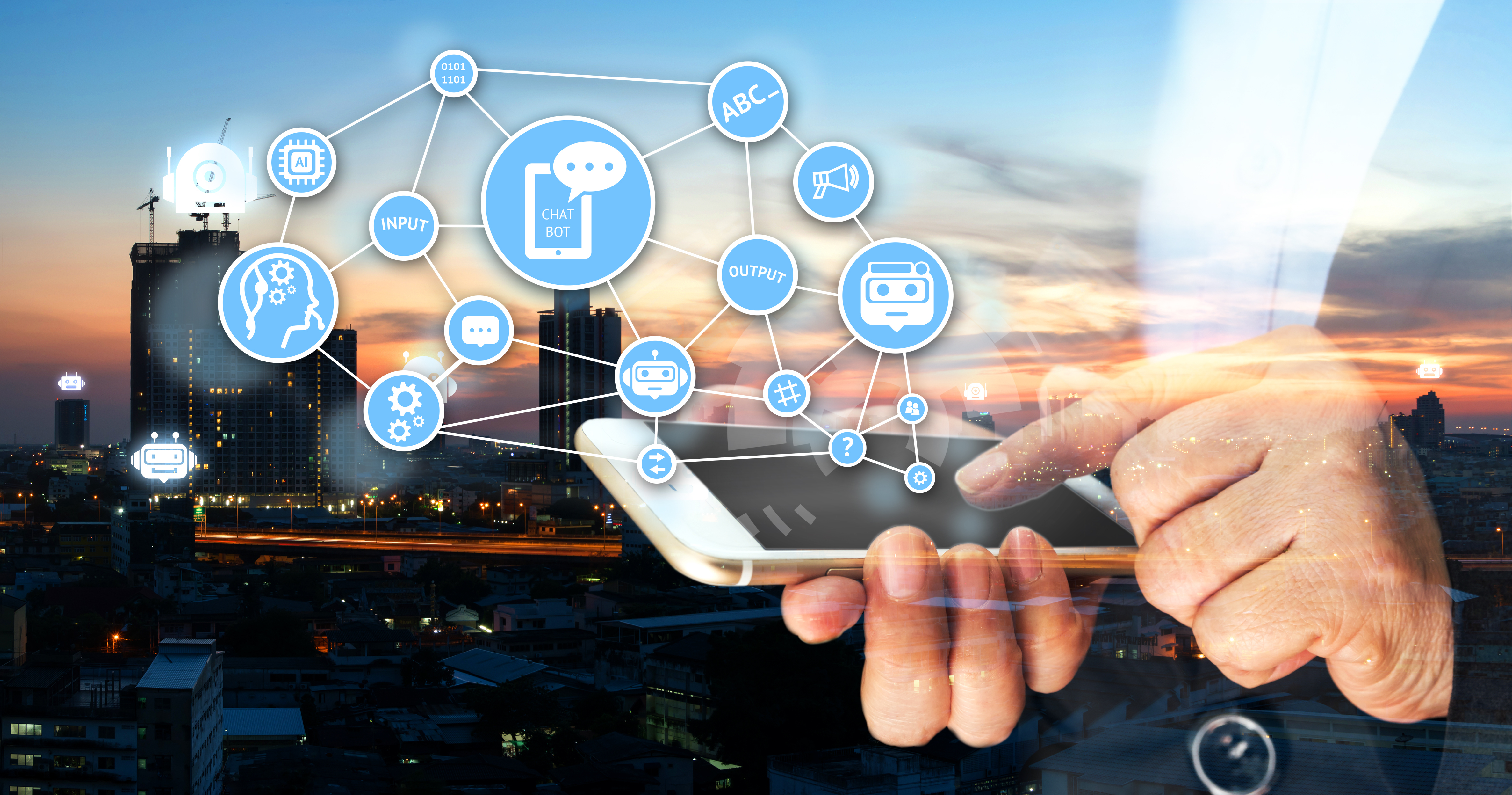Chatbots are one of the hottest trends in the world of Artificial Intelligence. Are bots the new apps?

One of the hottest current trends in the world of Artificial Intelligence and Machine Learning is “chatbots”. These are software entities that can carry on a conversation with a human, using voice or text. An article published in The Economist last April suggests that a marketplace for bots may soon overtake app stores as the fastest growing software segment.
The history of chatbots starts with ELIZA, a software program built at MIT in 1966, that appeared to be able to carry on a text conversation with human interlocutors. The basic technique used to build ELIZA, and all other chatbots for next 40 years, was pattern matching, i.e., looking up appropriate phrases from a database that match keywords from the input. The recent excitement over chatbots centers on the development of much more powerful machine learning methods that allow chatbots to actually understand conversation using natural language processing, and get progressively better at doing so, using machine learning. The new chatbots can use both text and voice, and have built in functions for web information retrieval among other things.
The new chatbots have been deployed, so far, in two main arenas. One is personal software assistants, like Apple’s Siri, Microsoft’s Cortana, Amazon’s Alexa, Google Assistant and IBM’s Watson. The other major application is in customer service, as first responders for telephone or web based ordering, grievance address and technical help systems. They have already been deployed by Taco Bell, Amtrak, Aetna, Mattel, Disney, and many other companies. Recently, Microsoft has decided to switch its frontline response system for technical support entirely to bots.
There is intense excitement among early stage investors in chatbot technology. Chatbots are probably going to replace a lot of “call centres” within a short time. According to a recent report from Orbis Research, wages lost from chatbot and AI deployment could reach $262B by 2021. In the long run they have the potential to replace many business functions that are now handled by web or mobile apps.
ABOUT THE AUTHOR: Dr. Debashis Guha (Director – Machine Learning)

Dr. Debashis Guha has more than two decades of experience in data analytics and machine learning, with an emphasis on economic and financial applications. He is the founder and CEO of a Bangalore based data analytics company, and has consulted for governments, central banks, multinational corporations and financial institutions across the world, and has taught in both USA and India. Dr. Guha is a graduate of IIT Kharagpur, and has a PhD from Columbia University in New York

